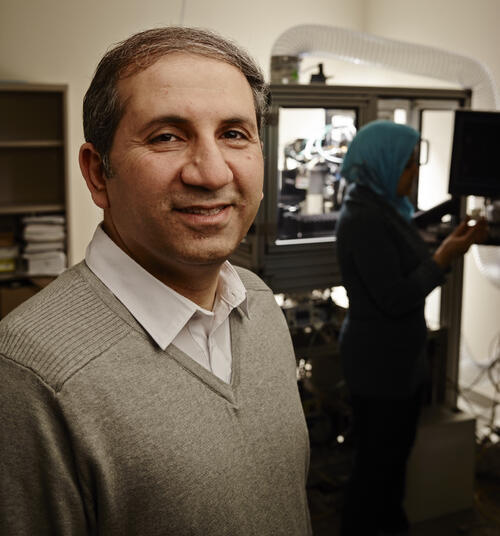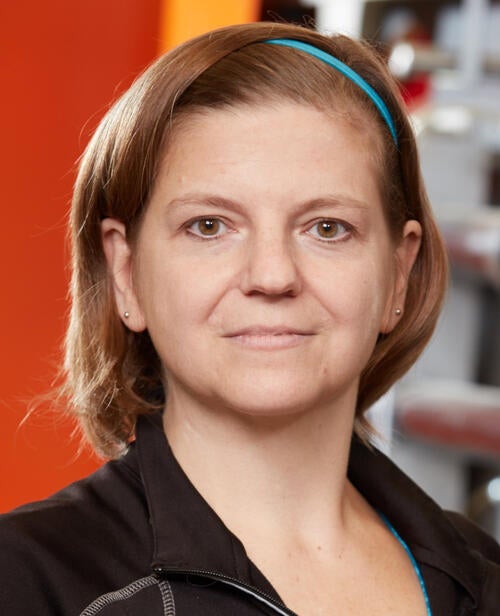
Waterloo researchers awarded $15.6 million for strategic research partnerships
NSERC to fund two networks and eight projects in the areas of engineering, math and science.

NSERC to fund two networks and eight projects in the areas of engineering, math and science.
By Rebekah Wiesel Office of ResearchTen researchers from the University of Waterloo received more than $15.6 million from the Natural Sciences and Engineering Research Council of Canada (NSERC) to fund two networks and eight projects that will further research efforts through academic and industry collaborations.
The Honourable Kirsty Duncan, Minister of Science and Sport, announced the Strategic Partnerships Grants at Promation in Oakville Ontario; one of the industry partners Waterloo is currently working with to further additive manufacturing. These grants help bring together expertise from academia, Canadian-based companies, government institutions, and international entities to collaborate on innovative research with commercialization potential.

Professor Ehsan Toyserkani
Of these grants, two networks have been funded to explore timely research. These include: professor of mechanical and mechatronics engineering Ehsan Toyserkani’s “Network for Holistic Innovation in Additive Manufacturing,” and professor of civil and environmental engineering Monica Emelko’s “Network for Forested Drinking Water Source Protection Technologies.” Both Professor Toyserkani and Emelko have demonstrated leadership by bringing together like-minded organizations to further their research and to consequently enhance Canada’s role on the international scale.
Professor Emelko is leading the “forWater” network in identifying new source water protection technologies for climate change adaptation. To ensure secure community water systems, this network will focus on forested source watersheds, because that is where the drinking water for most urban, rural and Indigenous communities originates. With the delivery of safe drinking water being a national strategic priority, Professor Emelko’s network, co-led by Uldis Silinis from the University of Alberta, is pivotal to climate change adaptation and global water security.

Professor Monica Emelko

Read more
Here are the people and events behind some of this year’s most compelling Waterloo stories

Read more
Times Higher Education ranks the University of Waterloo #97 based on data from the world's largest invite-only academic opinion survey

Read more
Research Infosource names Waterloo Research University of the year in the comprehensive category
The University of Waterloo acknowledges that much of our work takes place on the traditional territory of the Neutral, Anishinaabeg, and Haudenosaunee peoples. Our main campus is situated on the Haldimand Tract, the land granted to the Six Nations that includes six miles on each side of the Grand River. Our active work toward reconciliation takes place across our campuses through research, learning, teaching, and community building, and is co-ordinated within the Office of Indigenous Relations.